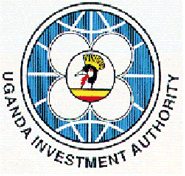 ReConnect Africa is a unique website and online magazine for the African professional in the Diaspora. Packed with
essential information about careers, business and jobs, ReConnect Africa keeps you connected to the best of Africa.
ReConnect Africa is a unique website and online magazine for the African professional in the Diaspora. Packed with
essential information about careers, business and jobs, ReConnect Africa keeps you connected to the best of Africa.


Uganda - Investing in the Pearl of Africa
Located at the heart of Sub-Saharan Africa and with a commanding base for regional trade and investment, Uganda, described by Winston Churchill as the ‘Pearl of Africa’, is positioned to become one of the most attractive business locations in eastern and southern Africa. Political and economic reforms have galvanised the country’s economy in recent years, while extensive privatisation has underscored the private sector as the primary agent in the country’s recovery process.
A key weapon in Uganda’s battle to encourage private investment, both foreign and domestic, is the Uganda Investment Authority. Set up in 1991, the UIA is the statutory agency responsible for promoting and facilitating investments in Uganda.
Interim Developments spoke to Dr. Maggie Kigozi, Executive Director of the UIA in Kampala, about the challenges and successes of attracting investment into Uganda
 ID: What are the key ways in which the UIA works to fulfil its mission?
ID: What are the key ways in which the UIA works to fulfil its mission?
MK: Our mission at the UIA is to make a significant and measurable contribution to Uganda’s economic development by stimulating private sector investment, promoting exports, and creating sustainable employment in all regions in Uganda. To fulfil this, five years ago we shifted our focus from general investment services to proactive, targeted promotion and specialized client facilitation and aftercare. This has been possible with the multidisciplinary team of staff that I have.
Our key roles in the development of the private sector are investment promotion, investment facilitation and aftercare, policy advocacy, and information dissemination. We have committed ourselves to the UIA Client Charter, which helps us to promote good practice and accountability to both the potential and existing investor. We have also encouraged the line agencies we work with to facilitate the investor, to draw up ‘Client Charters’ and commit to them. To this end we are developing a ‘Team Uganda’ concept that enables us to have liaison officials in the relevant institutions charged especially with investment related issues.
ID: The Government has stressed its determination to support the development of a thriving private sector. How is UIA supporting the implementation of this policy?
MK: A thriving private sector will achieve Uganda’s economic growth and development plan, to increase value added exports, create employment, bring in capital, and attract technology.
To implement this plan, the UIA has established a public service network of District Investment Promotion Officers to ensure regional balanced growth and proper exploitation of our natural resources spread all over the country, a good number of private sector alliances; for instance Women Entrepreneurs Network, and Uganda Desk which has facilitated a series of business programmes designed to strengthen and support Uganda’s base of domestic investors. UIA, as an organisation between the government and private sector, has promoted private/public sector dialogue. The private sector takes an active role in policymaking on issues that affect the business environment.
 Currently, the UIA is Secretariat to the World Bank funded Presidential Investor Round Table (PIRT), an initiative of our President, HE YK Museveni. The initiative is anticipated to enable government to set in place relevant interventions with the guidance of both local and foreign investors.
Currently, the UIA is Secretariat to the World Bank funded Presidential Investor Round Table (PIRT), an initiative of our President, HE YK Museveni. The initiative is anticipated to enable government to set in place relevant interventions with the guidance of both local and foreign investors.
ID: Industry needs a skilled workforce in order to maximize productivity and create wealth. How is Uganda – and the UIA – responding to the challenge of building capacity and developing appropriate human resources strategies for the country?
MK: For starters, Uganda is implementing the policy of Universal Primary Education in a bid to eradicate illiteracy. Our literacy rate is now 68%. At the national level the education curriculum is constantly undergoing development to come up with one geared towards job creation and not job seeking, which has been the case and the cause of unemployment. The ‘white collar jobs’ are not enough and cannot effectively be used to generate increased production from our resources. In addition to these efforts is the soon coming implementation of a national ICT policy. These strategies should equip Uganda’s human resources with competitive capacity to engage in business nationally, regionally and globally.
At the UIA, we identified, among others, Education and ICT as sectors where Uganda had the comparative advantage within the region to become a hub of excellence. To this end, we have prioritized the promotion of investment opportunities in these sectors to attract investment in order to increase access to capacity building. Under the PIRT, there is a sub committee on Education and ICT that is working out relevant strategies that will further develop Uganda’s workforce. Our ‘Uganda desk’ at the UIA has also been instrumental in initiating various practical and cost effective programmes to support and increase the capabilities of local entrepreneurs in sectors where Ugandans can be competitive.
ID: What are the key sectors leading Uganda’s economic recovery and what are the safeguards for investment from within the country, the Ugandan Diaspora and foreign investors?
MK: The key sectors leading Uganda’s economic recovery are mainly the service sectors like Health, Education, Tourism, Telecommunications, and Finance. The other sectors that have been doing well are Agro processing, specifically coffee, beverages, and tobacco. Mining, ICT and Energy are also among the leading attractive areas for investment.
Uganda’s economic recovery began in the 1990s. These were the fruits of economic reforms like the privatization of state enterprises. Our privatization policy has seen government pull out of business, leaving the ground fair for private sector players. Nevertheless, currently, government is looking at ways of intervention in selected key sectors to enhance capacity. Access to finance is one of the key challenges of the private sector in Uganda. This is will be solved shortly since our financial services sector is growing.
Uganda’s liberal economic policy also left forex controls to market forces. As for capital, you can bring it in and take it out as you please. Our experience shows that when investors are making money and are assured of protection of their investment, they do not leave – they reinvest their profits to make more.
Testimony to this is the presence and operations of Coca Cola and Stanbic Bank. Also present in Uganda are Shell, Standard Chartered, Nokia, Microsoft, Total, Pepsi, KPMG, Dunavant, Lafarge, and TATA. I might have left out a few.
“Ugandans in the Diaspora in the financial year 2003/04 contributed about five hundred and fifty million US dollars!”
We have continued to improve as an attractive location for investment, also because of a stable political environment, a sound legal and regulatory environment, and the protection of investment. Uganda is signatory to the main international investment related institutions like MIGA and OPIC, among others. Uganda has sound macroeconomic policies that have reduced the inflation rate to single digits for the last nine years. Interest rates have, over the years dropped from 40% to 25%, and are still going down, indicating a continuous improvement in the business environment.
I want investors, whether Ugandan leaving in Uganda or abroad, or foreign, to know that investment in Uganda is safe and viable. Ugandans in the Diaspora have gained trust in the business environment and in the financial year 2003/04, they contributed about five hundred and fifty million US dollars! We need more investment to take advantage of the new opportunities that have been created by the recent East African trade agreement.
